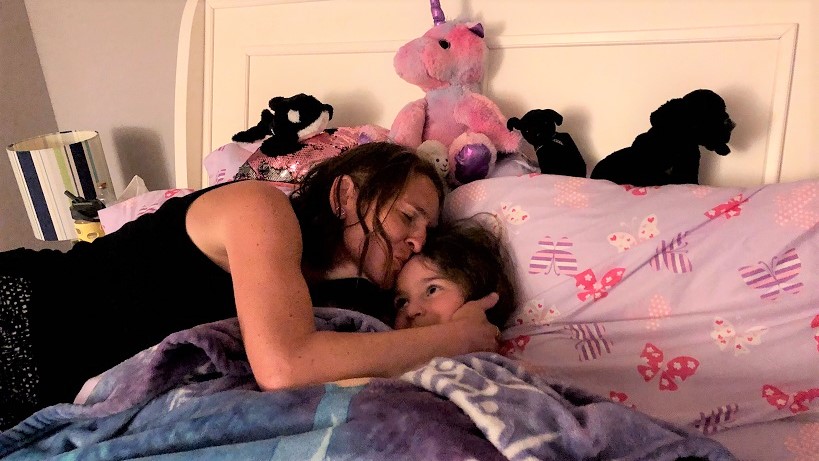Every night at bedtime, I tuck my kids in with a deep snuggle and we recite the same words “I love you forever and ever with my whole heart.” One evening, this prompted my daughter to ask me if her Papa loved her. She believes he did, even though he died before she was even an inkling in my mind. This led to a conversation (on a six-year-old level) about death, relationships, the lasting effects of love, and how “forever and ever” can be a feeling of love even when I’m not necessarily by her side. As you can see, our pillow talk is light and easy going! 
It isn’t easy to talk about death, especially when it involves thinking about our own or the possibility that loved ones might have to learn how to live without us. However, we learn in the Torah that not only are we obligated to try and face this reality, we must prepare for it.
This week we read Parshiyot Nitzavim and Vayelech, the two parshiyot that often surround the High Holy Days. Parshat Nitzavim reminds us that we always have a choice in life and that the proper path is to repent, to follow the rules, and to generally be good people. Parshat Vayelech teaches us about Moses’s process to transfer leadership to Joshua, and the final words he will share as the leader of the Israelite nation. The final words begin his goodbye to the people Israel.
These last few chapters are Moses’s way of letting the Israelite nation know that he won’t be with them forever, and they need to prepare for the time when he won’t be physically present. The last time Moses left the Israelites to go up the mountain for an extended absence, they were fearful and fraught. They broke the Commandments, created their own rules, and ended up in chaos. This time, Moses wants to ensure that the nation has the strength, faith, and guidance to move forward without issue.
Moses takes the time to share a plan of blessings and reminders to the people. He calls out the mourning they will feel and reminds them that while it would be easy to return to their “wicked ways,” it’s essential that they maintain faith and understanding in God’s protection.
So too must we remind our loved ones that we will always love and support them. One way we do that is through tangible, concrete assurances like wills, trusts, and mementos like photos, videos and letters. Another way is by reminding our loved ones now that even once we’re not physically together, which may be painful at times, the love and connection will always be there.
– Rabbi Eve Posen
Source: Conversations About the End – Parshiyot Nitzavim and Vayelech



